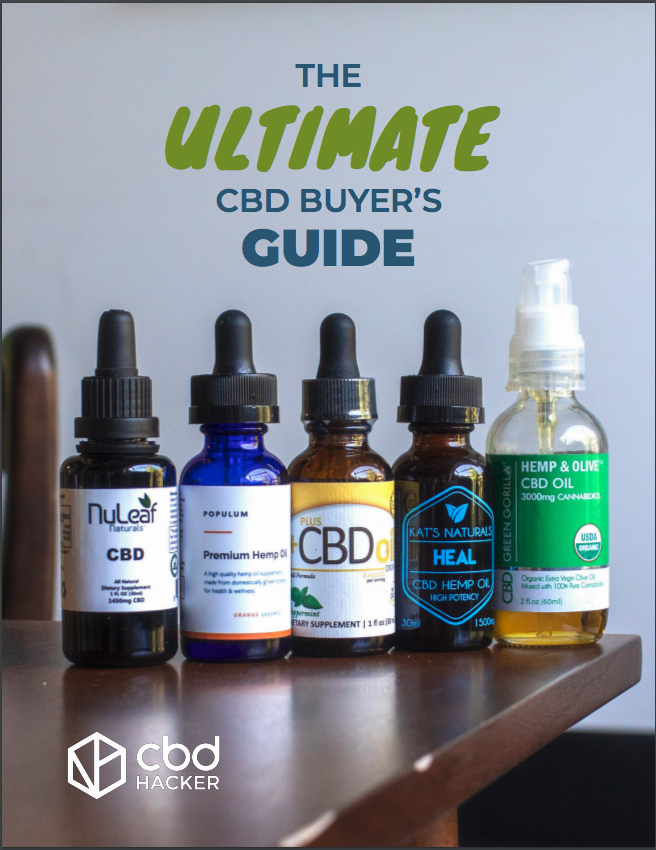It’s easy to find CBD products that claim to be made from hemp grown using organic practices. And there are even more brands that tout their products as all natural. But why is it so challenging to find organic CBD products that bear the official USDA seal?
And can you believe non-certified brands when they say that they’re using clean, sustainably grown hemp? Or are these just cynical CBD companies misrepresenting their products to cash in?
In this article, we’re going to take a look at the curious relationship between hemp cultivation and organic certification. And if you’re wondering whether it’s even worthwhile to make buying organic hemp a priority, keep reading to learn more.
What is USDA organic certification, anyway?
The organic agriculture movement traces its origins to the early 20th century. And in the US, it really started picking up steam in the 1970s. That’s when consumers started becoming more aware of industrial agriculture’s potential to have a detrimental impact on the environment.
It wasn’t until 1990, though, that Congress passed legislation to create legal definitions of “organic” agriculture. This law, the Organic Foods Production Act (OFPA), led to the creation of regulations for organic food and fiber. It also created an advisory National Organic Standards Board. Their task was to recommend substances that could be used in organic farming to the US Department of Agriculture (USDA). The group then helped to create the regulations for organic products.
It took more than a decade to finalize and implement those rules in 2002. So, what does “organic” mean, from a legal perspective?
For produce to be labeled organic, it must be certified to have met certain standards. Very simply put: growers must not use prohibited substances like (most) synthetic fertilizers and pesticides.
And for packaged foods with multiple ingredients, at least 70% of those ingredients must be produced organically. While the remaining 30% doesn’t have to be organic, it must conform to a set guidelines. For example, a manufacturer can’t include genetically modified organisms (GMOs) in organic products.
And how does that certification work in the real world? Well, the USDA makes the rules, but they don’t actually perform certifications. Rather, third-party certifying organizations evaluate the farms and processors to ensure that they meet the standards for USDA certification.
USDA Organic certification and hemp pilot programs
Around the same time that the USDA was developing the regulations for organic certification, activists were lobbying for the reinstatement of a crop that had been prohibited in the US for decades: hemp.
And by the time that Congress passed the 2014 Farm Bill, which authorized limited domestic hemp production, the USDA organic certification process was well established. So, some of the first hemp cultivators working under the new pilot programs sought organic certification for their newly legal crop.
In 2016, attorney Robert Hoban (currently of Hoban Law Group) wrote an article for New Cannabis Ventures describing one of his clients’ experiences seeking, attaining, and then losing organic certification.
That client, CBDRx, successfully applied for certification to an accredited certifying organization called OneCert in 2015. CBDRx was growing their hemp under the umbrella of a state pilot program. So, their crop was perfectly legal, and they met the requirements for certification. Meanwhile, OneCert was fully authorized to provide this certification. And the USDA had been allowing the certification of imported hemp products for years.
Sounds easy enough, right?
But in February of 2016, the USDA released an instruction telling accredited certifiers not to certify domestic industrial hemp production.
This, as you might imagine, caused a bit of an uproar among cultivators who had invested in becoming certified to produce organic hemp.

So, can domestic hemp get organic certification today?
In August of 2016, the USDA reversed course. They released a second document saying that domestic hemp could in fact be certified organic. But it could only qualify for certification if it was grown in accordance with the 2014 Farm Bill, through a state pilot program.
This means that, as of this writing, only growers in states that have pilot programs are eligible for organic certification. If a state has legalized hemp cultivation but does not have a pilot program, growers in that state can’t get certified, regardless of their practices.
Of course, the passage of the 2018 Farm Bill is expected to explicitly legalize hemp and hemp-derived cannabinoids nationwide. This will, presumably, make many more domestic hemp cultivators eligible for organic certification. But even then, there will be some hemp growers who won’t qualify, no matter how sustainable their practices.
So, who doesn’t qualify, even if they use organic farming methods?
Growers or handlers who sell less than $5,000 per year aren’t eligible for USDA certification. A small cultivator has to meet that sales threshold to qualify. Furthermore, applicants for organic certification can’t have applied any prohibited substances in the last three years. This means that growers who are switching from conventional to organic practices must invest a few years of work before they’re eligible for certification.
Finally, growers must apply for certification. No matter how clean their product or green their practices, there can be no certification without an application.
Why choose CBD made from organic hemp?
Daniel Huerter is the chief operating officer of Pure Spectrum, a brand that waves its “organic” flag high. In early 2018, the company announced a partnership with Colorado Cultivars, a USDA-certified grower, to supply Pure Spectrum with organic hemp for their products.
“The USDA certification is basically the gold standard of verifying a farm’s organic growing practices,” Huerter said.
And why is organic hemp desirable for CBD products in particular?
As Huerter told us, “Hemp is great at a process called phytoremediation. Simply put, this means that hemp is great at cleaning the soil it grows in by sucking up any toxins that may exist in the soil. While this is great for the soil, you would not want to use that hemp for food or medicine since it will now contain the toxins it absorbed.”
Remember how we said that cultivators who are seeking organic certification must not use prohibited substances for three years? That rule is especially important for crops like hemp. That’s because products made from hemp are likely to contain trace amounts of any unwanted chemicals that may be present in the soil.
But Huerter acknowledges that organic certification is not the only metric for quality, saying, “Many farms practice organic, sustainable growing practices without carrying their USDA certification. A buyer must do their research to confirm this to ensure the products safety.”
Is organic CBD oil really better for the planet?
For John Roulac, founder & chief hemp officer of RE Botanicals, hemp cultivation is clearly poised to play a vital role in addressing climate change.
He was previously the founder and chief visionary officer of Nutiva, an organic foods company that brought coconut, hemp, chia, and red palm oil to health food stores and supermarkets around the US. And in his new role, he’s building an organic CBD brand.
“You should care about the food, fiber, and supplements that you buy, because you are voting with your dollars,” says Roulac. “You’re sending a signal to the marketplace.”
And what happens to those synthetic fertilizers after they are introduced into the environment? Well, scientists believe that water management issues, global warming, and fertilizer run-off are contributing to the proliferation of toxic algae in the oceans.
“The number one environmental issue right now is the oceans. They are in collapse mode because of carbon dioxide from chemical pesticides,” Roulac said. And the choices that CBD consumers make today could have a huge impact on slowing that process.
That’s true for a few reasons. First, the massive growth of the industry means that right now, consumers can have a huge impact on its direction.
And with the 2018 Farm Bill poised to pass soon, hemp may soon be legal nationwide. That means that more growers and processors than ever before are about to become eligible for organic certification.
“The winners and losers of hemp brands will be decided in the next two years,” said Roulac. “Consumers have the chance to create a better world with hemp.”

So, what do consumers need to know about organic CBD?
Because of the peculiar and precarious current position of hemp cultivators, it falls to consumers to know what they are buying.
Sam Welsch, the president of OneCert, advises consumers to familiarize themselves with the requirements for labeling USDA certified organic products. That way, when you see the USDA organic seal on a product, you can verify that the mandatory elements appear on the label. And if the product isn’t labeled properly, it might not really be organic.
“It is mandatory that each organic ingredient is identified as organic on the ingredient statement,” Welsch said. “It is also mandatory that the name of the certifier be listed below the name of the manufacturer or distributor on the label.”
Huerter adds that, beyond questions of organic certification, it’s important for consumers to know the source of their CBD products. “If you cannot verify the source material, it is possible the product could be made using synthetic cannabinoids,” he said. “Synthetic cannabinoids are dangerous and unnatural to our bodies’ endocannabinoid system.”
And Roulac warns about tricky claims from companies that want to present themselves as environmentally friendly, even while using industrial agricultural practices.
Consumers should look closely at the language companies use, he said. “Look for the phrase, ‘Grown without pesticides, herbicides, and fungicides.’ This is code for ‘we’re using chemical fertilizers.’”
So, what does the future hold for organic CBD?
According to Welsch, certified organic hemp is showing strong growth, and it is likely to grow even faster after the passage of the 2018 Farm Bill. At OneCert, he said, “There are already a lot of new operations seeking organic certification for hemp products, so you will see new products on the market even before the bill passes.”






